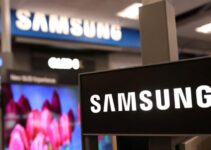Red Bull is an energy drink manufacturing Austrian multinational company. Chaleo Yoovidhya founded the energy drink company in 1976 under the name of Krating Daeng. Today, we’ll discuss the brand analysis of Red Bull; it focuses on its mission, vision, values; customer reviews, social media presence, marketing campaign analysis, web and social media traffic, customer journey, and target audience demographic.
Brand Analysis of Red Bull
Let’s discuss the brand analysis of Red Bull; some of the main elements involved in the Red Bull brand analysis are as follows;
Mission, Vision, and Value of Red Bull
The mission statement of Red Bull focuses on offering energetic and exciting wings to the people and the ideas. It highlights the fact that the energy drink boosts the energy level of employees and team members. However, the energy drink brand is much more than just selling drinks and beverages, rather it promotes and inspires the progress and growth of employees and team members.
The vision statement of Red Bull is sticking to high-quality standards and maintaining the company’s market leadership position in the energy drink market industry. It focuses on delivering superior quality service to customers in a highly profitable and efficient manner. However, the vision statement shows the company’s strong commitment to achieving and maintaining the market leadership position in the energy drink industry.
Customer Reviews and Feedback about Red Bull
The online customer reviews, star ratings, and feedback analysis of Red Bull is as follows;
- Amazon: 4.8star rating out of 1334 reviews
- ProductReviews: 3.7-star ratings ouf of 31reviews
- CVS: 4.4star rating out of 504 reviews
- TrustPilot: 2.4star ratings ouf of 165 reviews
- Comparably: 4.2star ratings out of 2378 reviews
- Home Depot: 4.5star rating out of 308 reviews
The online customer reviews, star ratings, and feedback analysis of Red Bull shows that there is a mixture of both good and bad reviews. Happy and satisfied customers are sharing high star ratings and positive reviews about the energy drink brand. On the other hand, dissatisfied customers are sharing their negative experiences with the energy drink brand.
Social Media Presence of Red Bull
The social media presence and network following of Red Bull on various social media platforms are as follows;
- Instagram: 24.2Million followers
- Facebook: 50 million followers
- X: 2 million followers
- TikTok: 14.3Million followers
Red Bull has established a very strong presence and a very large network on various social media platforms. The energy drink brand regularly posts pictures of videos of adventure, athletic and high-energy workouts, and how the energy drink is boosting their morale and energy level. A proactive social media presence would help the company connect and engage with the targeted customers and become familiar with the growing interests and needs of customers.
Marketing Campaign Analysis of Red Bull
Red Bull runs various types of marketing and advertisement campaigns for the promotion of its products and brands. The energy drink brand employs various media channels, traditional and digital media channels; sponsorship of mega sporting events, collaborating with the world’s leading sports celebrities, brand ambassadors, and celebrity endorsement. Multiple marketing campaigns on different media channels would help the company amplify its customer market reach, network, and sales.
Web and Social Media Traffic of Red Bull
The web and social media traffic of Red Bull on various media platforms is as follows;
- Traffic: 9Million monthly average visitors
- Average Duration: 1.43 minutes
The source of web and social media traffic comes from the following countries:
- USA: 14.04%
- Turkey: 10.7%
- Spain: 6.3%
- Germany: 4.88%
- Japan: 4.51%
- Others 59.52%
The proportion of web traffic comes from the following media channels:
- Direct: 38.24%
- Referrals: 4.31%
- Organic Search: 53.98%
- Paid Search: 0.74%
- Social: 2.35%
- Email: 0.05%
- Display: 0.35%
Percentage of traffic comes from following social media platforms;
- YouTube: 14.95%
- Facebook: 6.73%
- LinkedIn: 50%
- Reddit: 11.69%
- X: 8.34%
- Others: 8.25%
Red Bull Customer’s Journey
The customer journey of Red Bull starts with running various types of marketing and advertisement campaigns. The promotional campaign offers attract the attention of targeted customers; it makes them buy the drink while shopping for beverages next time. However, if the energy drink beverage meets and satisfies their quality standards, they would buy the product repetitively; otherwise, they try some other energy drink beverage.
Target Audience Demographic of Red Bull
The demographic segment of the target audience of Red Bull is as follows;
- Age: 18 to 64 years old
- Gender: 67% men and 33% women
- Education: lower to higher
- Income: medium to higher
- Interest: soft drinks, energy drinks, beverages
- Social Status: medium to higher
The demographic segmentation of the target audience of Red Bull allows you to create a buyer persona and the customer avatar of the ideal customer. They are both men and women from various age groups; they have an interest in energy drink beverages, and they want to enjoy the energy drink while feeling low.
Conclusion: Brand Analysis of Red Bull | Red Bull Brand Analysis | Strategic Analysis of Red Bull
After an in-depth study of the brand analysis of Red Bull; we have realized that Red Bull is the world’s leading energy drink manufacturing brand. If you are learning about the Red Bull brand analysis; then you should keep in mind the abovementioned mission, vision, values; customer reviews, social media presence, marketing campaign analysis, web and social media traffic, customer journey, and target audience demographic.

Ahsan is an accomplished researcher and has a deep insight in worldly life affairs. He goes Live 3 days a week on various social media platforms. Other than research writing, he’s a very interesting person.


